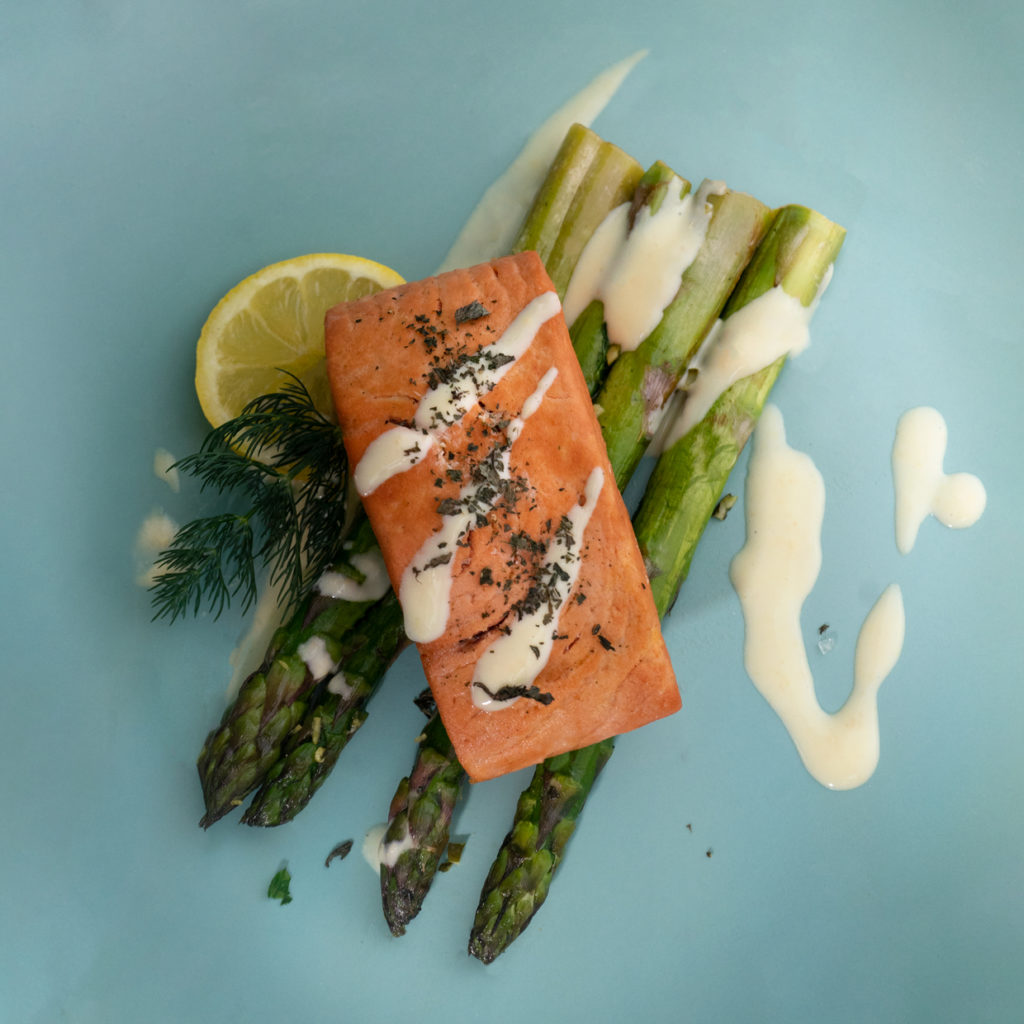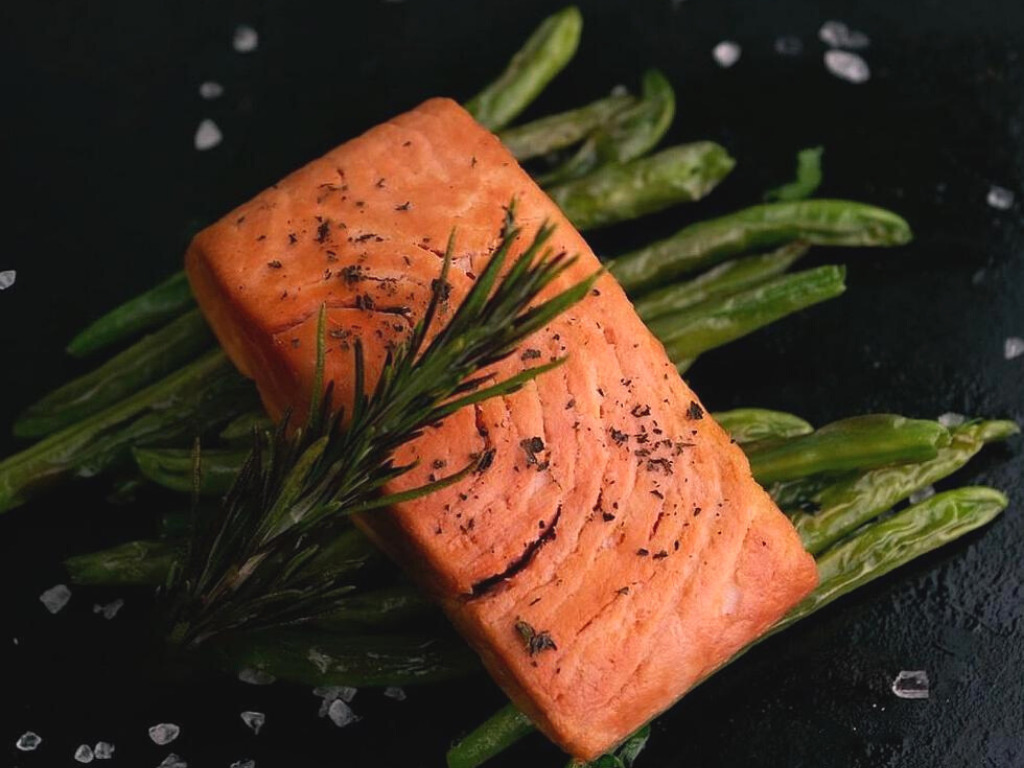3 Mins Read
Vegan salmon may be healthier than conventional salmon—at least when it comes to contaminants including mercury and PCBs, according to a recent test funded by vegan salmon startup Revo Foods.
“Many people believe that vegan products are unhealthier than animal products, but is that actually true?” asks Revo Foods. The Austrian vegan seafood producer, which developed the world’s first 3D printed plant-based salmon, says it had an independent lab compare its plant-based smoked salmon to three different conventional smoked salmon brands.
The results
According to Revo Foods, while the conventional salmon samples were all high in mercury and PCBs (polychlorinated biphenyls), those contaminants were “not or hardly detected in plant-based Revo salmon.” This, the company says, shows a significant health benefit and reason to consider making the switch to plant-based seafood.
Mercury and other contaminants are among the leading reasons consumers avoid seafood. It’s a particular cause for concern for pregnant and breastfeeding women. The World Health Organization classifies mercury as one of the top ten chemicals or groups of chemicals of major public health concern because of its link to damage to the nervous, digestive, and immune systems. Its also been shown to have risks to lungs, kidneys, skin, and eyes.

Revo says the lab results on the three conventional salmon brands showed an average mercury concentration of 37 micrograms per kilogram. The concentration for Revo Salmon was below the detectable limit, less than 10 micrograms per kilogram or 0.01 parts per million. “This shows a clear benefit of plant-based salmon for preventing the intake of heavy metals,” Revo says.
The presence of dioxins and PCBs is another reason consumers are reducing their seafood consumption. High and consistent exposure to PCBs has been linked to an increased risk of type-2 diabetes, obesity, cardiovascular disease, nervous, reproductive, and immune risks, as well as certain types of cancer.
According to Revo’s lab results, the vegan salmon contains 106 picograms per kilogram (a picogram is one-trillionth of a gram), while conventional salmon was close to 493 pg/kg. Major health organizations recommend keeping PCB levels to below 140 pg per week. That means a single 8-ounce serving of fish, about 250 grams, may contain more than a week’s worth of the chemicals.
Salmon 2.0
The findings come after Revo Foods, which launched at the beginning of the pandemic, debuted what it calls an “ultrarealistic” plant-based ‘salmon 2.0’ fillet. It shared the vegan fish at a public tasting at the end of May in Vienna.

“It’s all about structure and creating the perfect bite,” Robin Simsa, CEO of Revo Foods, said in a statement.
The tasting followed the launch of Revo Foods’ smoked salmon, which is currently sold in 16 countries across Europe including supermarkets in Austria and Germany.
The company is the recent recipient of €2.2 million in equity-free grant funding from the Austrian Research Promotion Agency to further develop its vegan seafood. Revo says its whole-cut vegan salmon will be in stores by the beginning of next year.




